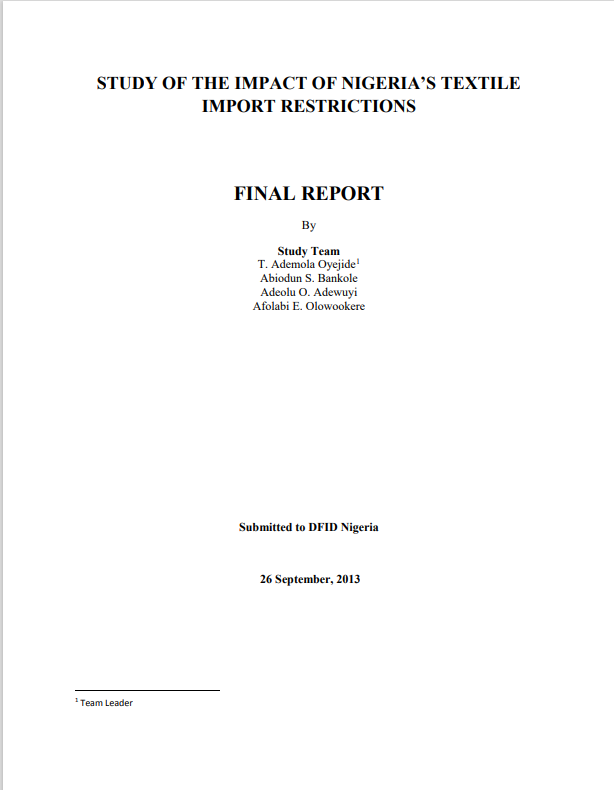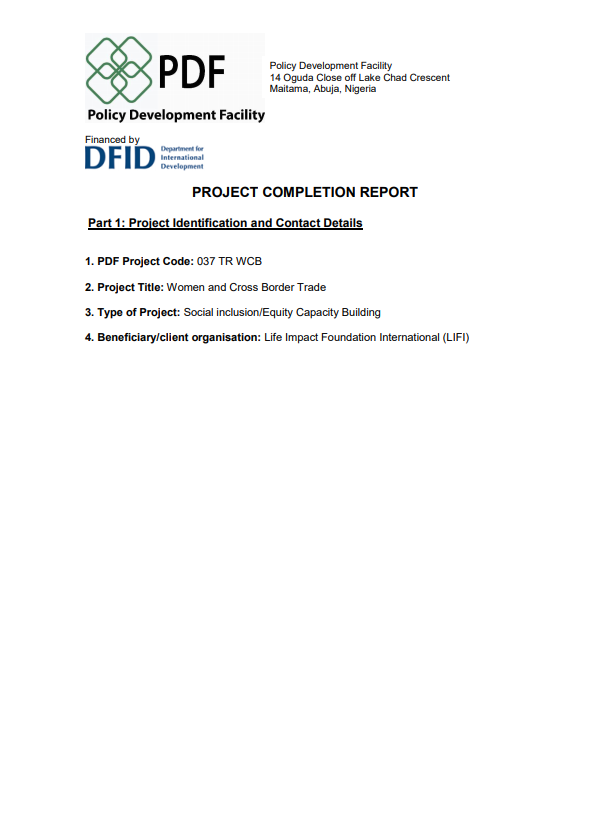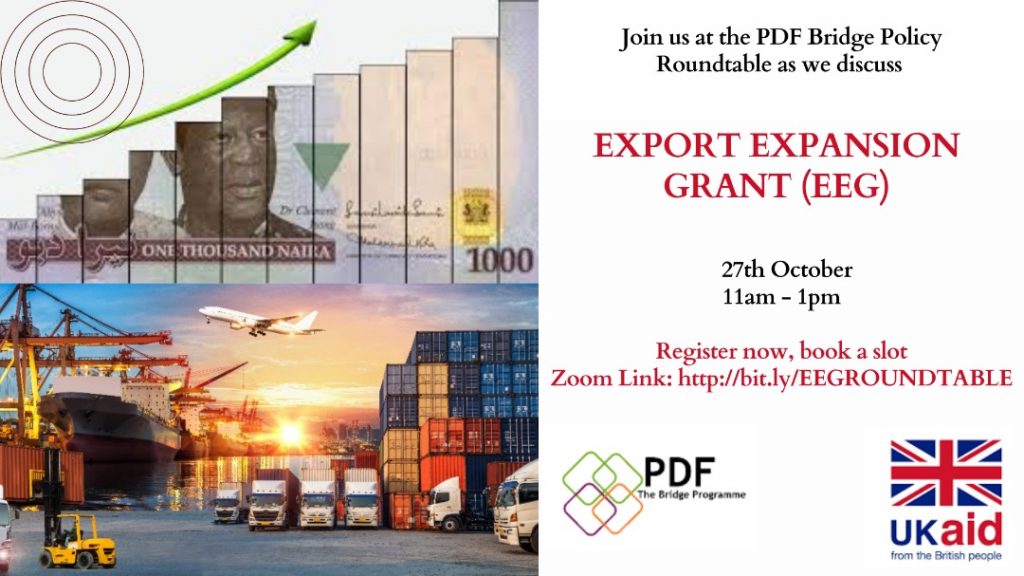Capacity Building for Trade Associations

Associated resources
This study focuses on the determination of the impact of Nigeria’s textiles import restriction. Specifically, the study describes the structure of the global and Nigeria’s textile industries as well as the global value chain, and the policy environment surrounding the industry in a global and national perspective. It was conducted in 2013 with support from FCDO (formerly DFID).
This study conducted by PDF with support from FCDO (formerly DFID) shows that women who engaged in cross border trade contribute to food security by trading food products from areas of surplus to areas of deficit. The paper reveals that depending on how this trade is organized, these women have the potential to contribute significantly to household earnings and resources. This empowers women by giving them financial independence and control of their own resources.
Export Expansion Grant (EEG) was established under the Export Incentives and Miscellaneous Decrees of 1986 and amended into an Act in 1992 to accomplish the diversification agenda of the Federal Government of Nigeria (FGN). Other export support funds created under the same Act are the Export Development Fund (EDF) and Export Adjustment Scheme Fund (EASF). The funds have been repositioned in the Economic Recovery and Growth Plan (ERGP) of 2017-2020. The EEG is a post-shipment incentive scheme aimed to achieve three key objectives: (i) to enable exporters to expand their businesses more conveniently, (ii) make Nigeria’s non-oil export more competitive, and (iii) facilitate greater and faster foreign market penetration.
PDF II (now PDF Bridge)’s Trade Policy Workstream funded a study on “Analysis and Impact of the Export Expansion Grant on Export Potential, Market Access and Export Competitiveness in Nigeria”. This policy roundtable discussed the findings and recommendations from this study.
Businesses that operate in a particular domain are expected to adhere to some rules and regulations. Here is a training material that covers some of these requirements. This does not take the place of legal advice.
This dialogue explores the alternative ways to provide market access to the southeast business hubs from Aba through Onitsha. COVID19 has caused businesses to reimagine their trade value-chain working actively to diversify roles. This dialogue explores ways that new technologies can help bridge the gap between buyers, sellers, and manufacturers.





